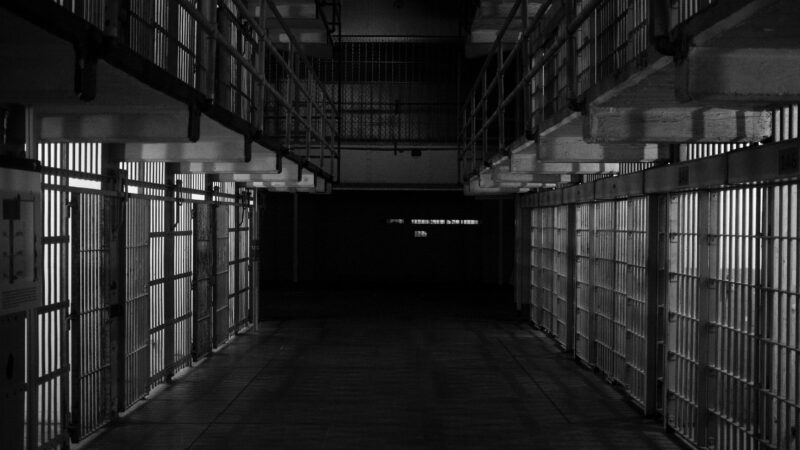Rousseau and the Legacy of Romanticism
One idea that I’ve fondly taken from Augusto del Noce is that ideologies have an internal logic to them, which unfolds as they interact with real-world events. Philosophies aren’t static, but constantly changing as they play out against one another historically. This view, while similar to the Marxist notion of praxis, finds ultimate inspiration from Joseph de Maistre. It’s de Maistre who writes that the French Revolution sweeps men up against their will and devours its own children.
Once put into practice, revolutions take on a life of their own, and like a wild tiger on a leash, drag their authors to new and unheard-of places. This isn’t to deny human free will; something I strongly affirm. It’s rather to recognise that rational humans, faced with circumstances, strive to act consistently with what they believe. This mechanism of consistency is what causes ideologies to evolve over time.
This insight is a powerful tool for understanding the long-term consequences of philosophies. The social sciences may quantify popular actions and opinions, but because human wishes are often nebulous, and people are fond of lying to themselves, there’s always room to dispute the results. The romantic primitivism of Jean Jacques Rousseau is one such ideology. Since being unleashed into the world from the bloody womb of the Reign of Terror, it has branched in many different directions and morphed into shapes Rousseau himself wouldn’t have recognised.
To define romanticism, I turn to Irving Babbitt and his 1919 work Rousseau and Romanticism. Romanticism sets itself in opposition to classicism. Classicism seeks standards for ethics and culture in universal types which it deems natural. It’s not the case that classicism seeks rules necessarily (lest we confuse it with Kantianism). Aristotle is the foremost classicist, yet he denies that norms are truly codifiable into rules. A universal type is rather an ideal based upon the nature of something. A classicist (like Aristotle) might say that being polite at the dinner table is something we should do, and this politeness consists of showing due moderation in eating, drinking, talking etc. But this isn’t a rule so much as a way of displaying the excellence proper to a human being.
Classicism isn’t opposed to emotion either. Rather, it subdues emotions to rational norms. Human nature has a standard of excellence which demands the proper use of emotion. In other words, emotions are good or bad depending on how we wield them according to a standard for the human species. The one able to do this is a universal type, what Aristotle calls the phronimos, or wise man. The later Stoics didn’t condemn emotions entirely, as the popular misconception of them. They rather encouraged natural emotions and discouraged the unnatural. Again, nature is a standard for ideal behaviour, external to individual fancy.
Romanticism, on the other hand, seeks standards in what’s unique and unrepeatable. Instead of conforming to generic ideals, goodness comes from spontaneous individual acts and thoughts. The cause for this is Rousseau’s doctrine of original sanctity. Classicism makes a distinction between ‘things-as-they-are’ and ‘things-as-they-ought’. Humans, animals, and plants don’t come into the world fulfilling an ideal; they arrive imperfect and must strive after their ideal. If we deny this, as Rousseau does, then to be good just is to be what one is. The generic ideal has no purpose and drops out. Authenticity to oneself as one is becomes the aim of life, and this can only find expression in unrepeatable spontaneous acts.
Indeed, once authenticity becomes central, it’s but a short step to rebelling against all standards which society imposes on the self. Since whatever standards society imposes must be ideal repeatable types, and no ideal repeatable types are authentic, no socially imposed standards can be authentic. And since goodness lies in authenticity, being truly good means casting off the standards society has imposed.
As Alasdair Macintyre wryly says in After Virtue, Enlightenment philosophes have the least self-awareness of all thinkers. They create new and revolutionary systems, but the content of their morality is entirely inherited from the civilisation they’ve inherited and which they despise. Thus, Rousseau’s ethics are stuffed full of quaint and puritanical Calvinist ideas from his Genevan upbringing. “Effeminacy” is one of his constant worries, and he applies the term, in boyish fashion, to anything he doesn’t like. Thus, in the Discourse on the Origin of Inequality, he can condemn civilised man:
“By becoming sociable and enslaved, he becomes weak, fearful, and grovelling, and his soft and effeminate way of life ends by enervating both his strength and his courage.”
Take these relics away, however, and Rousseau’s romanticism has only its sentimental primitivism to act as a limiting moral principle. Goodness is whatever lies in the untainted human heart, freed from social corruption. What becomes of it then? I wager it must enter an eternal spiral of liberation. Romanticism is built on the idea that we’ll be truly happy only when we free ourselves from all external rules and uncover a pre-social authenticity. Since this is a lie, no amount of liberation will ever create happiness. So, to remain consistent with itself, romanticism must seek ever more shackles of oppression to shatter. It’s either that or admit error.
The progressive radicalisation built into romanticism is visible everywhere. The sexual revolution, for example, has no brakes, because it’s built on a romanticised and primitivist vision of sex that would be falsified the moment brakes are applied. The radicals of the mid-twentieth century believed that socialised sexuality was corrupt, and once the orgasm was freed from all external restraints, pure happiness would result (Wilhelm Reich, for example, thought-free love was the precondition to utopian social democracy). Free love hasn’t made us happier, however. So, the answer is to find ever more previously unknown sexual taboos, whose chains we must shatter if we’re at last to be free.
In everyday morality, romantic assumptions have remade the life quest we each undertake for goodness, into a quest for authenticity. Finding one’s true self is now a drain on the wallet of the entire Western bourgeoisie. People of ages past underwent transformative moral journeys that turned them from sinners to saints, but theirs wasn’t a trek for authenticity. They did something far more mundane: they changed their minds. There’s an implicit vanity in the true-self doctrine. Changing your mind means admitting error. Finding your true self means you were right all along, but just didn’t notice it, because society was keeping you blind.
The cultural production of this quest is, I believe, simply inferior to the production of a mind that looks outwards from itself onto something else. Someone obsessed with finding his authentic self doesn’t have time to stand in awe of things greater than himself. What is falling in love, if not to be overcome by the sense of the intrinsic irreplaceable value of another person, without reference to oneself? We have all effectively become Rousseau writing his Confessions. A man who delighted in nature and other people only as frissons to express his authentic self, and could begin his book with the words:
“Here is the only portrait of a man, painted exactly after nature and in all her truth, that exists and probably ever will exist.”
In education, romantic ideas have done away with the rote learning that characterised pedagogy from Ancient Greece, through the middle ages and down to the Victorian Age. Twentieth-century educators like John Dewey, following in Rousseau’s footsteps, sought to remake schooling around the true self doctrine. Instead of moulding a pupil to conform to an ideal (a gentleman or citizen), modern education exists to help him discover his uncorrupted pre-social self. Self-expression without rules has become the educational norm, with the result that we have people who are experts in analysing their own minds and emotions, but incapable of self-denial or rigour. The excellence of mind and body requires constant training. We accept this more readily about the body because physical fitness is visible. But the mind, which is invisible, needs just as much training to be fit for purpose.
In the end, I see romanticism as an enormous civilisational gamble. The difference between classicism and romanticism is about what we think reality is truly like. The classicist sees a human race born lacking and sees culture as how a scaffold is to a building. Culture exists as an aid to human completion. The romantic, meanwhile, claims that human nature isn’t completable, but already complete, and merely corrupted. He wagers that if we accept this idea, we can remake the world for the better. Like any gambler, he doesn’t think about the stakes if the wager is lost. Here the stakes are social catastrophe if the assumption is untrue. If the truth is classical, then romanticism is akin to raising a lion on a strict vegetarian diet.




Why Insects on an Island cannot Fly
When British biologist Charles Darwin (1809 – 1882) researched the birds and insects living on tropical islands in the 19th century, he observed that many species had gradually abandoned their wings. Insects were equipped with small legs and feet, but no flying apparatus.
The reason they were without wings was because their innate survival instinct would kill them. If the tiny, feather-light insect were to take off and – through a tandem of ocean winds and its curiosity – land on the sea, in all probability it was never to return home again. Nature has preserved these bugs from the dangers of this instinctive trait, of their deceptive curiosity. She has deprived these little critters of the weapons to accidentally, and in all their enthusiasm, kill themselves. But why didn’t nature do the same to us? Why did we get wings, with all the resulting consequences? More than a comparison, this is a metaphor. A metaphor that bespeaks the hubris and curiosity of human beings. It is also a metaphor about censorship and ill-considered decisions, but we’ll come to that at the end. Luckily this analogy simultaneously offers an antidote. An antidote that comes in the shape of conservatism, and some apolitical common sense.
Curiosity
Anyone who studies human behavior and its history notices that people have a fundamental fear of standing still, both physically, culturally and intellectually. As humans we – ab initio – have a reflex to think linearly, in past, present and future. This typical forward-thinking stems from the fundamental curiosity that characterises human beings. With necessity and inevitability, we search for a human nature and the principles that can construct our being. We do not only ask questions, but we also live the questions – after the spirit of Rilke. There is a constant desire to seek them out, study them, weigh them and above all conclude them. We have been doing this since the Homo sapiens developed self-awareness – years and years ago. This curiosity makes it difficult and almost unnatural for man to resign himself to his position, stand still and appreciate what he already holds.
From this curiosity, then, stems the illusion that as we progress more and more, we will eventually be able to grasp something better. Or in other words, we fly off to the perfect island where everything will be better than on the dreary island we were born on. An island-insect, if endowed with thoughts and desires similar to ours, would want to fly to another island, and might even try to do so instinctively even without these thoughts and desires. We, unlike these insects, are not held back by any natural limitations. We have managed through reason, tools and technology to make our way to any other island on the globe. This curiosity and ingenuity, however, holds significant challenges and perils for a society. The few people who seem to notice these risks are the conservatives, and they are the only ones who – often at the expense of their own image – can offer some counterweight to these innate sentiments.
Conservation
Conservatism is – as the late Sir Roger Scruton (1944 – 2020) so beautifully observed – the philosophy of conservation. It is the philosophy of preservation, to protect what is good, to be grateful for what we have and to be critical of the delusion of the day. In other words, it is a philosophy born of love and appreciation. Love for a shared culture, land, language and country and appreciation for the work and sacrifices of the people who created such a place. Perhaps Austro-Bohemian composer Gustav Mahler’s comment encapsulates this very idea most succinctly, and deserves its mention: “Tradition is not the worship of ashes, but the preservation of fire.”
As a philosophy she seems – prima facie – rather stately and dusty, but not particularly bellicose or harmful. Yet today the majority of the so-called intellectuals seem to think of conservatism as some dubious ideology, something for old white men or a thing from a different time.
I stop writing for a moment, sip at my coffee and and wipe the ashes off my trousers. I think to myself: is this really what being conservative means? I am 24, well of this age, and do not – yet – feel like an “old white man”, however that should feel. But why do the people around me, my friends, fellow students, politicians, journalists, teachers, writers and philosophers seem so numb to these sentiments? Why the bad connotation of conserving something that is good?
After all, we conserve all sorts of things. In museums and archives, experts work every day to preserve ancient artifacts, statues, rugs, coins, drawings or paintings, to prevent them from being lost or broken, from being consumed by microscopic bugs, moisture or adverse temperatures. We value these objects. They are worth our resources, time and energy and deserve to be passed on to the next generation who will – hopefully – develop the same love for them. Conservatives who delicately, scrupulously and meticulously handle the fragile ideals on which our culture was built, are somewhat comparable to them.
However, what can be argued is that this is a skewed comparison because the conserved object is fundamentally distinct in both situations. Many people would argue that, unlike museum objects, the conservative is not trying to protect something that is worth protecting. Indeed, the opposite is often claimed, the conservative wants to conserve something that is inherently bad. Conservatism wants to perpetuate old patterns of power, inequality, hatred and oppression, preserving something that should have been destroyed and forgotten long ago. Let us not fall into this trap and assume that there are – still – a plethora of things worth preserving and cherishing.
The Open Sea
To ‘island-insects’, flying was a useful – and presumably quite ‘fun’ – quality that was being eliminated to ensure their survival. Thus, the creatures also parted with certain opportunities that existence offered them. They no longer enjoyed the freedom enjoyed by their ancestors, with the wind in their tails and their heads in the clouds, but it made something else possible, namely their survival.
The survival of a culture is less visible than the survival of an individual, a football coach in difficult waters or an Iberian bull-fighting for its life in a Madrid arena. It does not always perish in revolutions or iconoclasts, but in a quietly growing disinclination to conservation and stagnation. One only has to look at publishing house Puffin – censoring dozens of words in Roald Dahl stories last year – to see the pitfalls of such beliefs. Collectively we say: let’s make tabula rasa and finally move forward as a society”. In that same capacity however, we might leave behind something that may be more fragile and valuable than we hold it to be.
An old Russian adage can probably convey my message more adequately than my own pen can: you are born where you are needed, and that is on your own island. Let us not get lost in the endless opportunities that existence offers us, but celebrate its inherent beauty. Let us not fly too close to the sun or too far from our island, but take care of what we have been given, lest evolution eventually take away our wings too. For if we rush out to sea, we may realise that this island was not so bad after all, and will come to the painful conclusion that, so deep in the open ocean, this place may lie forever behind us.
Photo Credit.